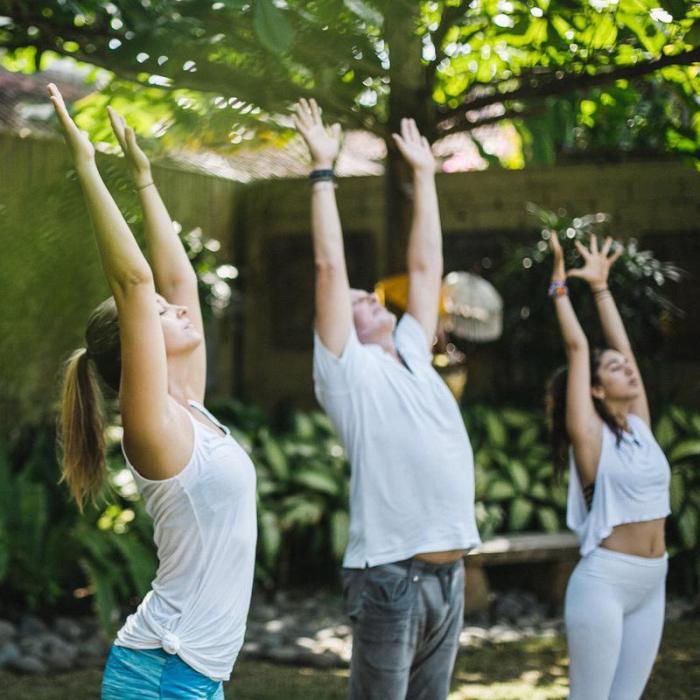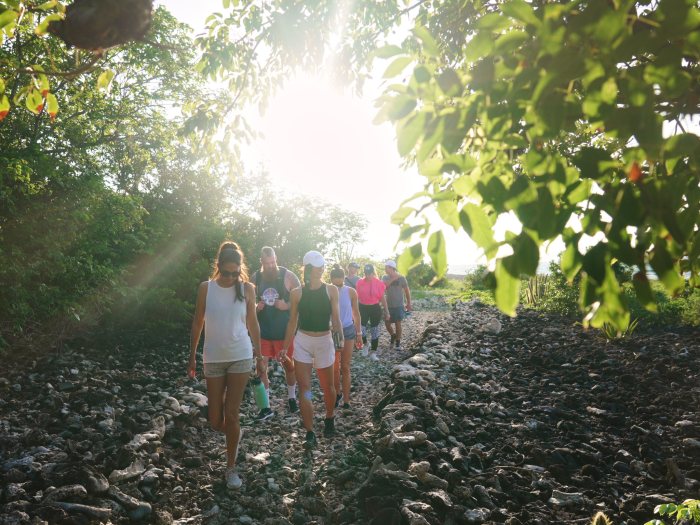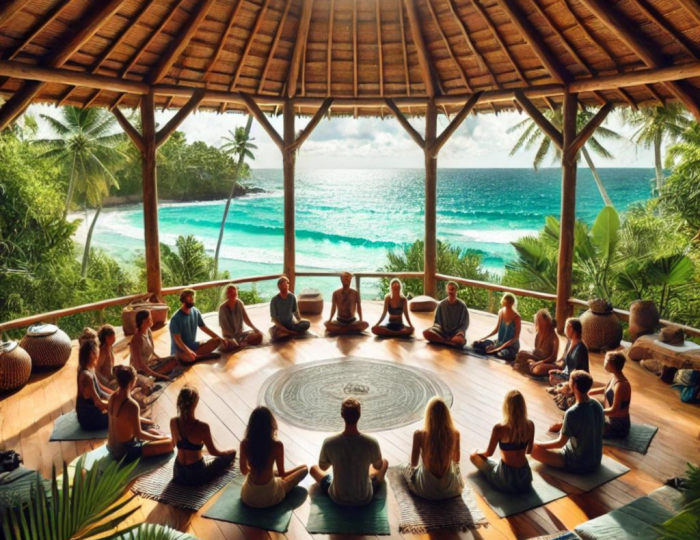Wellness retreats with on-site nutritionists offer a transformative approach to well-being, seamlessly blending relaxation and rejuvenation with personalized nutritional guidance. These retreats cater to individuals seeking holistic health improvements, providing a supportive environment to achieve their wellness goals. The integration of expert nutritionists allows for tailored dietary plans and education, maximizing the benefits of the retreat experience.
Participants can expect a range of services, from individual consultations to group workshops and meal planning, all designed to foster lasting healthy habits. Different nutritional approaches, such as plant-based, ketogenic, or Mediterranean diets, are often incorporated, ensuring a program suitable for diverse needs and preferences. Beyond the nutritional aspect, these retreats often include other wellness activities like yoga, fitness classes, and spa treatments, creating a comprehensive wellness journey.
Defining Wellness Retreats with On-Site Nutritionists

Wellness retreats offering on-site nutrition services represent a holistic approach to well-being, combining relaxation and rejuvenation with personalized dietary guidance. These retreats go beyond traditional spa experiences by integrating expert nutritional advice directly into the program, creating a synergistic environment for lasting lifestyle changes.These retreats provide a supportive and immersive environment where individuals can focus on improving their health and well-being through a combination of relaxation techniques, physical activities, and tailored nutrition plans.
The core features include a curated program of activities, comfortable accommodation, healthy and delicious meals prepared by chefs often in consultation with the nutritionists, and most importantly, access to qualified nutrition professionals for personalized guidance.
Target Audience for Wellness Retreats with On-Site Nutritionists
The target audience for these retreats is diverse, encompassing individuals seeking to improve various aspects of their health. This includes individuals looking to lose weight, manage chronic conditions like diabetes or heart disease, enhance their athletic performance, or simply cultivate healthier eating habits. The retreats can appeal to a wide range of ages and backgrounds, from young professionals seeking stress management and improved energy levels to retirees focusing on preventative health and longevity.
Many find the retreats particularly appealing as a means of escaping daily stressors and committing fully to self-care.
Models of On-Site Nutritionist Integration
Several models exist for integrating on-site nutrition services into wellness retreats. One common approach is to offer individual consultations, providing personalized dietary advice and meal plans based on individual needs and goals. Another popular method is to conduct group workshops, educating participants on various nutritional topics such as healthy eating habits, mindful eating practices, and specific dietary approaches like Mediterranean or plant-based diets.
Many retreats also incorporate a combination of both individual and group sessions, offering a comprehensive approach to nutrition education and support. Finally, some retreats integrate nutrition seamlessly into the overall experience through pre-planned meals and snacks that align with the retreat’s nutritional themes. This holistic approach ensures consistent and supportive dietary practices throughout the retreat duration.
Potential Benefits for Participants
The benefits of participating in a wellness retreat with on-site nutritionists are numerous and far-reaching. Participants often experience significant improvements in their physical health, including weight loss, reduced inflammation, improved energy levels, and better management of chronic conditions. Beyond the physical, many report enhanced mental clarity, reduced stress, and improved overall well-being. The personalized attention from nutritionists fosters a deeper understanding of healthy eating habits and provides the tools and support necessary for sustained lifestyle changes.
The immersive environment of the retreat allows participants to fully dedicate time to their health goals, minimizing distractions and maximizing the effectiveness of the program. The supportive community fostered within the retreat setting also contributes significantly to long-term success. For example, a participant struggling with weight management might find the group workshops and individual consultations invaluable in developing sustainable strategies and building confidence in their dietary choices.
Similarly, someone managing a chronic condition might gain crucial knowledge and support to better control their symptoms through a tailored nutritional plan.
Types of Nutritional Programs Offered: Wellness Retreats With On-site Nutritionists

Our wellness retreats offer a variety of nutritional programs designed to support diverse health goals and preferences. We understand that individual needs vary greatly, and our on-site nutritionists work closely with each guest to create a personalized plan that aligns with their specific dietary requirements, health conditions, and lifestyle. The programs are not simply diets, but rather holistic approaches to eating that emphasize nutrient density, mindful eating practices, and sustainable lifestyle changes.Our approach focuses on education and empowerment, equipping guests with the knowledge and tools to maintain healthy eating habits long after they leave the retreat.
We believe that sustainable wellness is achievable through a combination of mindful nutrition, physical activity, and stress management techniques, all integrated into the retreat experience.
Nutritional Approaches Offered
We offer several distinct nutritional approaches, each with its own unique benefits and considerations. These programs are carefully designed and implemented by our team of registered dietitians and nutritionists. They are adaptable to individual needs and preferences, ensuring that every guest receives a tailored plan that aligns with their health goals and dietary restrictions.
Plant-Based Nutrition
This program emphasizes whole, unprocessed plant foods, such as fruits, vegetables, legumes, whole grains, and nuts. It’s ideal for individuals seeking to improve their overall health, reduce their risk of chronic diseases, and promote sustainable living. The program focuses on maximizing nutrient intake while minimizing processed foods, animal products, and added sugars. Our nutritionists guide guests in creating balanced plant-based meals that meet their individual caloric and macronutrient needs.
This includes addressing potential nutrient deficiencies common in plant-based diets, such as vitamin B12 and iron, through supplementation or strategic food choices.
Ketogenic Diet
The ketogenic diet is a high-fat, moderate-protein, and very-low-carbohydrate approach. It aims to induce a metabolic state called ketosis, where the body primarily burns fat for energy instead of glucose. This approach can be beneficial for weight loss and may have positive effects on certain neurological conditions, though it requires careful planning and monitoring. Our program provides personalized guidance on macronutrient ratios, appropriate food choices, and strategies for managing potential side effects, such as the “keto flu.” We also emphasize the importance of electrolyte balance and hydration while on this diet.
Mediterranean Diet
The Mediterranean diet emphasizes whole, unprocessed foods characteristic of the cuisines of countries bordering the Mediterranean Sea. It features abundant fruits, vegetables, whole grains, legumes, nuts, seeds, and olive oil, with moderate consumption of fish and poultry, and limited intake of red meat and processed foods. This approach is associated with numerous health benefits, including reduced risk of heart disease, type 2 diabetes, and certain cancers.
Our program focuses on teaching guests how to incorporate these principles into their daily lives, providing guidance on meal planning, recipe ideas, and mindful eating practices.
Sample Weekly Meal Plan (Mediterranean Diet)
The following is a sample weekly meal plan incorporating the principles of the Mediterranean diet. Remember, this is a sample, and individual meal plans will be tailored to specific needs and preferences by our nutritionists.
| Day | Breakfast | Lunch | Dinner |
|---|---|---|---|
| Monday | Greek yogurt with berries and honey | Lentil soup with whole-grain bread | Baked salmon with roasted vegetables (broccoli, zucchini, bell peppers) |
| Tuesday | Oatmeal with almonds and fruit | Chicken salad sandwich on whole-wheat bread with a side salad | Chicken and vegetable skewers with quinoa |
| Wednesday | Scrambled eggs with spinach and whole-wheat toast | Mediterranean salad with chickpeas, feta cheese, and olives | Vegetarian pasta with marinara sauce and vegetables |
| Thursday | Smoothie with fruits, vegetables, and yogurt | Leftover vegetarian pasta | Grilled fish with roasted sweet potatoes and asparagus |
| Friday | Whole-wheat toast with avocado and tomato | Tuna salad with whole-grain crackers | Lamb chops with roasted vegetables and couscous |
| Saturday | Pancakes made with whole-wheat flour and topped with fruit | Leftover lamb chops and vegetables | Pizza with whole-wheat crust, vegetables, and low-fat cheese |
| Sunday | Breakfast burrito with eggs, beans, and vegetables | Leftover pizza | Roasted chicken with potatoes and green beans |
Marketing and Promotion Strategies
Marketing a wellness retreat with on-site nutritionists requires a multifaceted approach that highlights the unique benefits offered. Successful promotion hinges on identifying the target audience and employing strategies that resonate with their values and aspirations. This involves showcasing the transformative experiences offered and building trust and credibility through various channels.Effective marketing materials should clearly communicate the unique selling propositions of the retreat.
These materials need to emphasize not only the luxurious aspects of the retreat but also the tangible health improvements participants can expect. This requires a strategic blend of visual appeal and informative content.
Marketing Materials
High-quality photography and videography are essential for showcasing the tranquil setting, delicious and healthy meals, and the welcoming atmosphere of the retreat. Imagine a brochure featuring stunning images of the retreat’s location, perhaps a serene mountain vista or a secluded beach. Accompanying these images should be testimonials from past participants detailing their positive experiences and the tangible results they achieved.
Website content should similarly emphasize the transformative nature of the retreat, highlighting the expertise of the nutritionists and the personalized nature of the programs. Consider including before-and-after photos (with participant consent) showcasing weight loss or improved energy levels. These visuals build trust and demonstrate the effectiveness of the program.
Effective Marketing Channels
Reaching the target audience requires a multi-channel strategy. Social media platforms like Instagram and Facebook offer visual storytelling opportunities to connect with potential clients. Partnerships with wellness influencers and bloggers can extend reach and build credibility within the target demographic. Online advertising through targeted campaigns on platforms like Google Ads can effectively reach individuals actively searching for wellness retreats.
Collaborations with health and fitness centers, spas, and yoga studios can tap into existing networks of potential clients. Email marketing, when used responsibly and ethically, can nurture leads and build lasting relationships. Finally, consider public relations outreach to relevant publications and media outlets to secure coverage that builds brand awareness and establishes credibility.
Sample Social Media Campaign Plan
A successful social media campaign should be planned strategically. The campaign should run for at least four weeks, focusing on different aspects of the retreat each week.
- Week 1: Focus on the Location and Ambiance. Post stunning photos and videos of the retreat’s setting, highlighting the tranquility and beauty of the environment. Use hashtags relevant to wellness retreats and the specific location. Engage with comments and answer questions promptly.
- Week 2: Highlight the Nutritional Programs. Showcase the different types of nutritional programs offered, emphasizing the expertise of the on-site nutritionists. Share short videos or infographics explaining key concepts, such as the benefits of mindful eating or the importance of gut health. Run polls and quizzes to engage followers.
- Week 3: Feature Client Testimonials. Share positive reviews and testimonials from past participants. Include before-and-after photos (with permission). Run a contest or giveaway to encourage engagement and generate excitement.
- Week 4: Focus on Booking and Special Offers. Promote any special offers or discounts available. Include a clear call to action, directing followers to the booking page. Use a countdown timer to create a sense of urgency.
Throughout the campaign, consistent branding, high-quality visuals, and engaging captions are essential. Regular posting, consistent interaction with followers, and utilizing relevant hashtags will maximize the campaign’s reach and effectiveness. Monitoring analytics and adapting the strategy based on performance data is also crucial. A consistent brand voice and a focus on building a community around the retreat will foster loyalty and encourage repeat bookings.
The Role of the On-Site Nutritionist
The on-site nutritionist at a wellness retreat plays a crucial role in guiding participants towards healthier lifestyles and achieving their wellness goals. They are integral to the overall success of the retreat, providing personalized dietary advice and support, and fostering a positive and empowering environment around food and nutrition. Their expertise complements the other wellness offerings, creating a holistic and integrated approach to well-being.The on-site nutritionist’s responsibilities are multifaceted and demanding, requiring a blend of clinical knowledge, interpersonal skills, and adaptability.
Their daily tasks vary depending on the retreat’s specific program and the needs of the participants, but generally include consultations, workshops, meal planning, and collaboration with other wellness professionals.
Daily Tasks and Responsibilities
The daily tasks of an on-site nutritionist often involve conducting individual consultations to assess participants’ dietary habits, health history, and wellness goals. They create personalized meal plans, taking into account any dietary restrictions, allergies, or preferences. This might include designing menus for the retreat’s meals or providing guidance on making healthy choices from existing options. They also lead workshops and group sessions on various nutrition topics, such as mindful eating, healthy cooking techniques, or specific dietary approaches.
Additionally, they may be involved in grocery shopping for the retreat or overseeing the preparation of meals to ensure adherence to the planned nutrition programs. Finally, they maintain detailed records of participants’ progress and provide ongoing support and guidance.
Collaboration with Other Wellness Professionals
Effective collaboration is key to the success of a wellness retreat. The on-site nutritionist works closely with other professionals, such as yoga instructors, fitness trainers, and spa therapists, to create a cohesive and supportive wellness experience. For instance, the nutritionist might collaborate with a yoga instructor to develop a program that combines mindful eating practices with yoga poses that promote digestion and relaxation.
Similarly, they might work with fitness trainers to ensure that participants’ dietary intake supports their exercise routines and recovery. This integrated approach maximizes the benefits of the retreat and creates a holistic approach to wellness. For example, the nutritionist could advise on pre- and post-workout nutrition strategies to optimize performance and recovery, working in tandem with the fitness trainers’ exercise plans.
Potential Challenges and Solutions
Several challenges may arise for on-site nutritionists. One common challenge is managing diverse dietary needs and restrictions among participants. This requires meticulous planning and flexibility in menu design and individual consultations. A solution is to pre-screen participants’ dietary requirements before the retreat and have backup plans for accommodating unexpected needs. Another challenge is dealing with participants who are resistant to dietary changes.
The nutritionist must employ motivational interviewing techniques and create a supportive environment to encourage positive behavior change. Providing education, emphasizing the benefits of healthy eating, and celebrating small successes can significantly improve compliance. Finally, maintaining a professional and ethical approach while building rapport with participants in an often intimate setting is crucial. Clear boundaries and professional communication strategies are essential to address this.
Regular self-reflection and seeking supervision can also aid in maintaining professional conduct.
Client Experience and Testimonials
A positive client experience is paramount to the success of any wellness retreat. A well-designed onboarding process, coupled with exceptional service from the on-site nutritionist, fosters client satisfaction and generates valuable testimonials that can be leveraged for future marketing efforts. This section details a client onboarding process and provides examples of positive testimonials and feedback collection methods.
Client Onboarding Process, Wellness retreats with on-site nutritionists
The client onboarding process begins before the retreat even starts. A welcome package, sent digitally or physically, should include a detailed itinerary, packing list tailored to the retreat’s activities, and a pre-retreat questionnaire focusing on dietary needs, allergies, preferences, and health goals. This allows the on-site nutritionist to personalize the experience from the outset. Upon arrival, clients receive a personalized welcome and a brief introductory session with the nutritionist, reviewing their questionnaire responses and setting individual goals for the retreat.
Daily check-ins and group sessions reinforce the nutritional plan, and open communication channels ensure any concerns or questions are addressed promptly. A post-retreat follow-up, including a personalized meal plan and resources for continued healthy habits, completes the process, solidifying the long-term benefits of the retreat.
Sample Client Testimonials
“The retreat was transformative! Working with the on-site nutritionist, Sarah, was incredible. She helped me understand my body’s needs and develop sustainable eating habits. I feel healthier and more energetic than ever before.”
Jane D., Marketing Executive
“I initially felt overwhelmed by the idea of a strict dietary plan, but Sarah made the process so easy and enjoyable. Her approach was compassionate and encouraging, and I learned so much about nutrition. I highly recommend this retreat!”
John B., Software Engineer
“I came to the retreat seeking stress reduction and weight management. Thanks to the personalized nutrition plan and the support of the nutritionist, I achieved both goals. I feel so much better physically and mentally.”
Maria S., Teacher
Collecting and Utilizing Client Feedback
Collecting client feedback is crucial for continuous improvement. Methods include post-retreat surveys (both digital and paper), in-person feedback sessions, and informal conversations with the on-site nutritionist. Surveys should incorporate a mix of quantitative (e.g., rating scales) and qualitative (e.g., open-ended questions) questions to gain a comprehensive understanding of the client experience. Feedback should be analyzed to identify areas of strength and areas needing improvement.
For example, if multiple clients mention a lack of variety in meal options, the retreat organizers can adjust the menu accordingly. Positive feedback can be used in marketing materials, while constructive criticism informs improvements to the retreat program and the on-site nutritionist’s services. Regularly reviewing and acting upon client feedback demonstrates a commitment to excellence and enhances the overall client experience.
Visual Representation of the Retreat
The visual representation of a wellness retreat emphasizing nutrition is crucial for attracting potential clients and conveying the experience’s essence. A carefully crafted visual identity, from website imagery to brochures and social media posts, can significantly impact the perception and desirability of the retreat. The goal is to create a feeling of serenity, health, and rejuvenation, appealing to those seeking a transformative experience.The ideal setting for such a retreat would be a tranquil location, perhaps nestled amidst nature – a secluded beachfront property, a mountain retreat, or a lush countryside estate.
Imagine a sun-drenched image: a sprawling, rustic-chic villa with large windows overlooking a vibrant garden overflowing with herbs and vegetables. The architecture is understated elegance, with natural materials like wood and stone dominating the design. Inside, the ambiance is calming and sophisticated; soft, natural light filters through sheer curtains, illuminating airy rooms decorated with calming earth tones and pops of vibrant color from fresh flowers.
Guests are seen relaxing by the pool, participating in a yoga session on a sun-drenched deck, or enjoying a wholesome meal prepared with fresh, locally-sourced ingredients. The overall feeling is one of peaceful rejuvenation, a sanctuary dedicated to holistic well-being.
Image Use in Marketing Materials
Visual elements play a pivotal role in marketing wellness retreats. High-quality photography and videography are essential for conveying the retreat’s atmosphere and the experience offered. Images of healthy, vibrant meals prepared with fresh, colorful ingredients – think bowls overflowing with seasonal fruits and vegetables, artistically plated dishes featuring lean proteins and whole grains – are highly effective in showcasing the nutritional focus.
Similarly, images of guests participating in activities like yoga, meditation, or nature walks, showcasing smiling faces and a sense of community, reinforce the holistic approach. Visuals of the retreat’s beautiful setting – serene landscapes, comfortable accommodations, and inviting communal spaces – create a sense of escape and tranquility. These images should be strategically placed across various marketing platforms, including the website, brochures, social media posts, and email marketing campaigns, to create a cohesive and appealing brand identity.
For instance, a website slider could showcase a series of images highlighting different aspects of the retreat, from the stunning location to the delicious food and engaging activities. Social media posts could focus on individual elements, such as a close-up shot of a healthy meal or a video showcasing a yoga session. Brochures could offer a more comprehensive visual overview, featuring a combination of landscape shots, activity images, and food photography.
The consistent use of high-quality, aesthetically pleasing visuals across all marketing materials will reinforce the brand’s message and attract potential clients seeking a luxurious and rejuvenating wellness experience.
Pricing and Packages

Investing in your well-being is an investment in yourself. Our wellness retreats offer a range of packages designed to cater to diverse needs and budgets, ensuring everyone can experience the transformative power of our programs. We understand that individual requirements vary, so we’ve structured our pricing to reflect the depth and breadth of services included.We offer three distinct packages, each designed to provide a unique and valuable wellness experience.
These packages vary in duration and the level of nutritional support provided, allowing you to choose the option that best aligns with your goals and resources. Each package includes accommodation in comfortable and serene surroundings, daily yoga and meditation sessions, and access to our stunning facilities. The key differentiator lies in the level of personalized nutritional guidance and support offered by our expert on-site nutritionists.
Wellness Retreat Package Options
| Package Name | Price | Included Services | Duration |
|---|---|---|---|
| Bronze Package | $1,500 | Accommodation, daily yoga & meditation, group nutritional workshops, access to wellness facilities. One initial consultation with the nutritionist. | 3 Days/2 Nights |
| Silver Package | $2,500 | All Bronze Package inclusions, plus two individual consultations with the nutritionist, personalized meal plans, and a follow-up consultation post-retreat. | 5 Days/4 Nights |
| Gold Package | $4,000 | All Silver Package inclusions, plus daily one-on-one sessions with the nutritionist, a comprehensive dietary assessment, customized grocery shopping list, and ongoing email support for one month post-retreat. | 7 Days/6 Nights |
Closing Summary
In conclusion, wellness retreats incorporating on-site nutritionists present a unique opportunity for individuals to prioritize their health and well-being. By combining personalized nutritional guidance with a relaxing and supportive environment, these retreats empower participants to make sustainable lifestyle changes and achieve lasting results. The tailored approach, coupled with the holistic wellness activities offered, creates a truly transformative experience, leaving participants feeling refreshed, revitalized, and empowered to embrace a healthier future.
Questions Often Asked
What are the typical costs associated with these retreats?
Prices vary significantly depending on the duration of the retreat, the level of services included (e.g., type of accommodation, number of consultations), and the location. Expect a range from several hundred to several thousand dollars.
Are these retreats suitable for people with specific dietary restrictions or allergies?
Absolutely. Reputable retreats will accommodate various dietary needs and allergies. It’s crucial to communicate your requirements during the booking process so the nutritionist can create a suitable plan.
How long are these retreats typically?
Retreat lengths vary, ranging from a long weekend to several weeks. Shorter retreats often focus on specific aspects of wellness, while longer retreats provide a more in-depth experience.
What if I don’t like the food provided?
Good communication is key. Most retreats offer a degree of flexibility and will work with you to adjust the meal plan based on your preferences and needs, within the context of the chosen nutritional approach.
Can I bring a guest?
This depends on the specific retreat and its policies. Some retreats may offer options for bringing a guest, while others are designed for individual participation. Check the retreat’s details for specific information.






